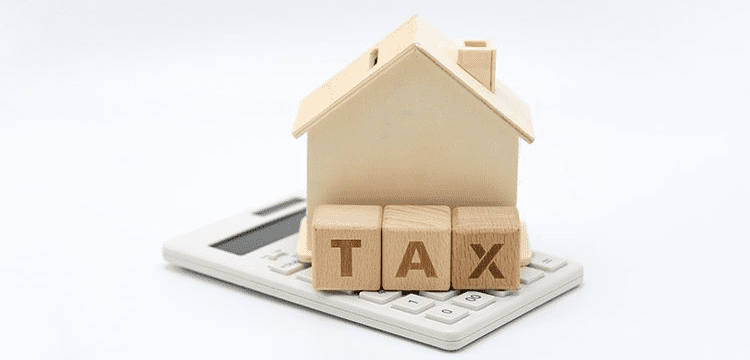[vc_row][vc_column][vc_column_text]ISLAMABAD: The Supreme Court of Pakistan granted interim relief on Wednesday against the 20% deemed income tax on real estate, which will reduce revenue collection, as tax collectors face a massive task of collecting Rs560 billion in one week to meet the nine-month revenue target.
A special bench led by Chief Justice of Pakistan Justice Umar Ata Bandial allowed taxpayers to pay only half of the assessed deemed income tax until the Supreme Court issued its final decision.
The court was critical of the Federal Board of Revenue’s (FBR) performance and its reliance on an already limited taxpayer base to meet targets.
According to the interim decision, the Supreme Court barred the FBR from taking any adverse action against taxpayers who deposited half of the assessed tax.
The petitioners were represented in court by Faisal Siddiqi, an advocate, who also questioned the FBR about the constitutional mandate to levy taxes in a province.
The real estate and manufacturing sectors have filed petitions against Section 7E, which was introduced by the government in June last year to impose taxes on people who earned 5% of the fair market value of capital assets located in Pakistan, who will be taxed at a rate of 20%.
According to the FBR, the effective tax rate is 1%, with an additional revenue of Rs15 billion expected. The initial estimate was Rs25 billion, which the FBR reduced after the government excluded some sectors from the scope of the tax, which the petitioners also contested, calling it discriminatory legislation.
Also Read: Emaar Group to invest $60 million in occupied Kashmir
The government has set an annual tax collection target of Rs7.640 trillion for the FBR for the current fiscal year. The target for the July-March period is Rs5.43 trillion, but the FBR had collected Rs4.87 trillion as of Wednesday.
This leaves it with a balance of more than Rs560 billion, which it must collect over the next six working days at a rate of Rs94 billion per day. On Friday and Monday, there will be a significant tax increase.
The FBR claimed a Rs213 billion shortfall during the first eight months, but data from the Ministry of Finance and the Accountant General for Pakistan Revenue suggested a Rs233 billion shortfall.
Any further shortfall will put the FBR’s performance under scrutiny. Despite a Rs170 billion mini-budget and 31.5% inflation, it is struggling to meet the targets. However, the FBR has so far been unable to capitalise on the high inflation reading by increasing sales tax collection.
According to sources, the International Monetary Fund may also request that Pakistan take additional revenue measures to compensate for any monthly shortfall.
According to sources, the FBR has collected Rs377 billion, or 52% of the March target of Rs727 billion. Sales tax collection remained at Rs147 billion, a 7% increase.
To meet the monthly target, the FBR needs to collect Rs276 billion in sales tax in March.
So far, income tax collection has been exceptional, with a 35% increase for the month.
During the hearing, the Supreme Court stated that the FBR was not a trustworthy organisation and that it was once again burdening those who paid their taxes.
Section 7E has faced serious constitutional challenges since its inception, with many arguing that the government may struggle to defend the legal provision in court because it falls under the purview of provincial taxation.
The Sindh High Court (SHC) ruled in favour of the FBR, but its legal team was unable to provide solid reasons to satisfy the court on Wednesday, whether the FBR had taxed real estate assets or income.
The matter was also challenged in the Lahore High Court, which wrote in its interim order that Section 7E taxation was done on the basis of “speculative value of the property,” which appeared to be in conflict with Section 116, which deals with the wealth statement that a taxpayer must submit along with the tax return.
The petitioners asked the Supreme Court whether Section 7E violated Articles 47 and 50 of the Fourth Schedule to the Constitution of 1973, because it cannot be considered deemed income from property, nor is it within the legislative competence of the federal legislature to enact such a law on the market value of immovable property.
The petitioners contended that the SHC misinterpreted and misapplied the Ellahi Cotton Mills Limited vs Federation of Pakistan decision by holding that there were no limits to the concept of deemed income, despite the fact that the Ellahi Cotton decision holds that there are limits to the concept of deemed income.
Petitioner Khalid Mehmood is the Chief Executive Officer and Managing Director of Getz Pharma (Pvt) Limited, Pakistan’s largest pharmaceutical company. He owns more than one immovable property and thus falls under the purview of Section 7E.
The petitioner’s movable property has been declared on his income tax returns. The petitioners also argued before the court that Section 7E was discriminatory, citing the fact that certain individuals, as well as their successors-in-interest, are exempt from the deemed income tax.[/vc_column_text][/vc_column][/vc_row]











